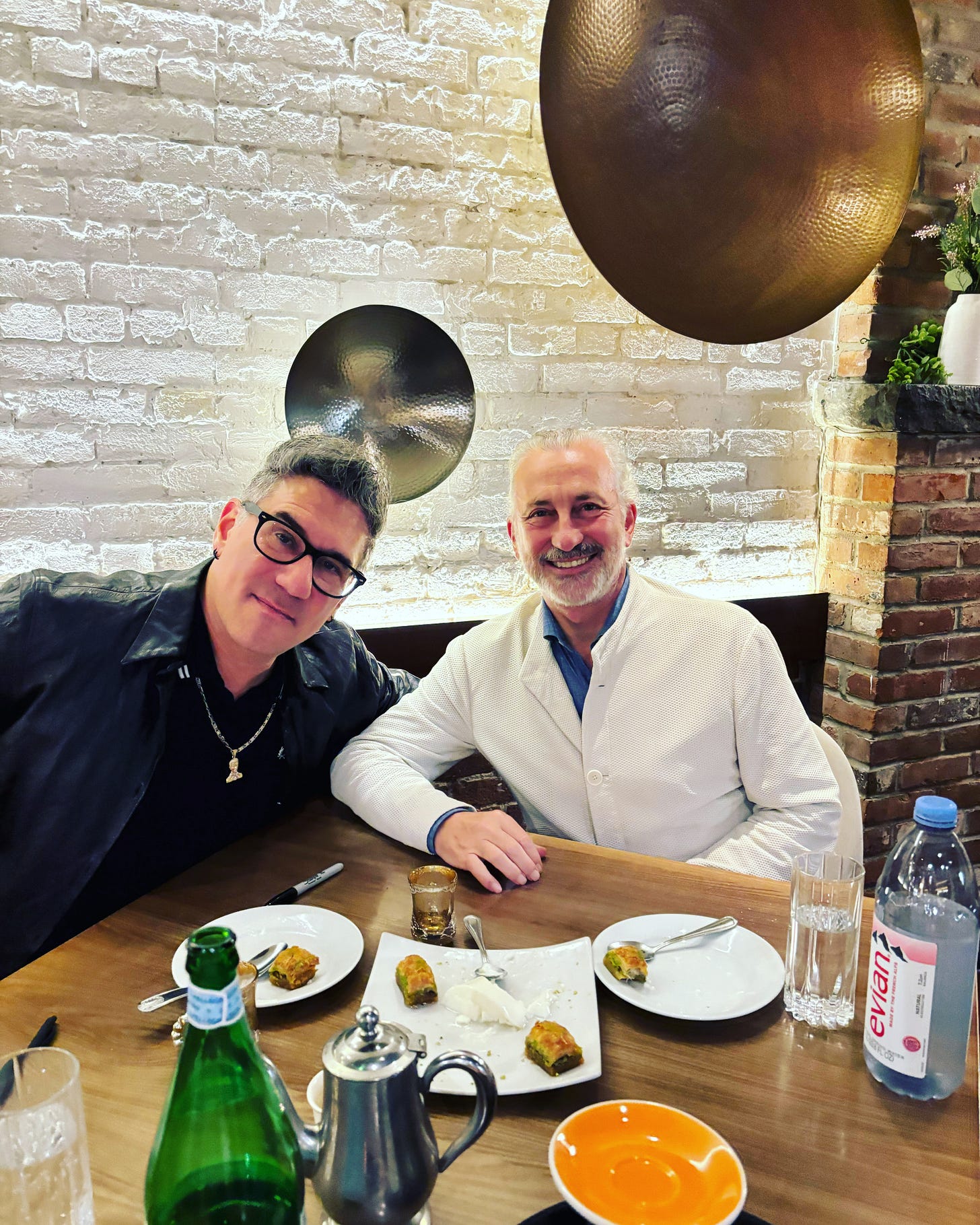My Search Changed Today
What I learned about the power of priorities
This is an article I never expected to write. I have changed my mind about a central element of spiritual and ethical practice.
First, some background. My teacher, now deceased, was a Harvard-trained physician who, when young, faced a crossroads. He was unsure whether to prioritize a medical career or the search. He selected the search.
The conundrum, he said, was settled for him by the passage from Matthew 6:33: “Seek first the kingdom of God and his righteousness, and all these things will be added to you.”
This passage is rooted in 1 Kings 3:10-13 in which Solomon is told by Yahweh that since he asked for wisdom he would receive not only wisdom but “I will give you what you have not asked for—both wealth and honor—so that in your lifetime you will have no equal among kings.”
For my teacher, these passages resolved his dilemma. I was unsure he had made the right choice. He had suffered grief and want later in life. Would any of it had occurred differently had he prioritized his career? I do not know. Had he chosen differently I might well have never become his student. Still, my choice differed from his.
I began to rethink this recently after a series of back-to-back podcasts with occultist Sanhre Daffowt. In part two, Sanhre remarked: “I would say if you want to manifest love into your life, the correct and the fastest way to do that is to work on making yourself into the ideal partner for the partner that you want.”
As I wrote previously:
Sanhre observed that in spell work or setting of intention one must ask whether I am personally suited for the support and fostering of what is sought. Am I capable of managing and holding the wished-for thing, such as a relationship or better job? Rather than request the thing or circumstance, ask, really ask, for the ability to warrant, hold, and have the thing or circumstance. That assumes payment.
In matters of mind metaphysics and selection, I began to work with Sanhre’s idea.
I began asking for the characterological fiber to foster and sustain the thing or circumstance sought.
As I did this, a remarkable opportunity reached me. In connection with a book-in-progress, Multiverse, I asked a good friend, Bob Roth executive director of the David Lynch Foundation—which teaches Transcendental Meditation (often free) to students and people in crisis—whether I might interview Dr. Tony Nader, M.D., Ph.D., chosen successor to Maharishi Mahesh Yogi and head of the worldwide TM movement. Dr. Nader lives in Paris. I asked Bobby on September 1. As happens in his world, which teems with remarkable occurrences, I had lunch in New York City with Dr. Nader—a signature privilege of my life—on September 10.
A portion of our interview touched—indirectly and unintentionally—on a macro version of what I had been considering. Its full relevance on a personal scale did not occur to me until afterward:
Mitch: I have a historical question for you. It seems to me that the search for ultimate principles here in the West may have gotten disrupted in the mid-to-late nineteenth century when Marx, and I’m speaking colloquially, of course, decided that Hegel needed to be flipped and that we needed to get rid of what he derisively called all the mysticism in Hegel, and he said, in effect, “let’s get down to economics.” So he flipped Hegel and that was persuasive to many people. That remains persuasive in greater or lesser degree today, including among people who have never heard of Hegel and will never read a page of Hegel. They are persuaded that the real ebb and flow of life is money and resources versus consciousness. I think Hegel would have agreed with every word you're saying. He felt that on a level of ideas, which he defined metaphysically, if I can use that word, there exists friction, and eventually one idea carries the day. And it continues until another idea carries the day. And he believed that ideas or consciousness are all there is. He used the word “ideas” in German. You and others use the term consciousness, but it's the same conversation. It seems a terrible misfortune for the West. That's my point of view. I don't know if you want to comment on Hegel.
Dr. Nader: Yes, it’s similar. It’s really, once again, the same story of reality: is it money or consciousness? Money or economics are expressions of consciousness, which we don’t shy away from. And the reality is that one can find this outcome of two contradictory things that Hegel calls the outcome of what he terms the dialectic. And money is a means. The problem is, if you reject one or the other, you get into trouble. If you reject consciousness, you lose the priority, because you live life through your consciousness. How can you reject consciousness? You can have all the money in the world but you can be depressed and you have anxieties and fears, even about your money. And you live that. Then what's the meaning of it? And if you go and leave life, which for a while India did, which is the ideal of being only consciousness and meditating, not being practical and in life, then you don't achieve even the enjoyments of life that are offered through consciousness. The dialectic is real, yes. So that's why we call it 200% of life. 100% of being and consciousness and then 100% of enjoyment and relative life. But not excessive in either case. You know, if you go into the excess in one and say, “Oh, this is what my senses want, this is what I get enjoyment from”—and you forget the basic, which is consciousness, which is goodness, which is all the other values, then you become a slave of money, not an owner of the money. You become owned by the money. So, it's not a question of possessing money. It's a question of being possessed by money. So this is how you lose priorities. Then there is no more dialectic, there is no more coming together of opposite forces—or that seem opposite, and that's the problem. It's like East and West. East is maybe at one time spiritual and conscious. West is material and all of that. And of course, West, at one time was thinking no one wanted to be spiritual. The West wanted material values. But then it forgot the value of consciousness and spirituality and just got drawn in by materiality and all of that. So it almost became more material, in a way, than Marx is.
Bringing this down to a personal scale, I had been doing intimately what I perceived Marx doing historically: reversing the order of life. I sought the condition that I trusted would bring happiness—before seeking the developed state or consciousness that would hold and foster, and, hence, make possible, the condition.
I do not know where this road leads. Or what it will produce. But it restores my faith that my teacher was right. Whatever decisions he may have wished to relive, if any, he placed the search first—just as I must place capacity before achievement.
This may or may not change my mind about achievement. But I know which to seek first.
Afternote
For those unfamiliar with the historicism of what I describe, I provide a note of background.
On January 24, 1873, Karl Marx wrote in his afterword to the second German edition of Capital v. I that Hegel grasped the “dialectics” of life but had the warring sides wrong: they are not thoughts / ideas (or Nous in Hermetic terms) but rather economics.
As Marx saw it, Hegel’s extra-physicalism had reality upside down or “standing on its head,” e.g.:
The mystification which dialectic suffers in Hegel’s hands, by no means prevents him from being the first to present its general form of working in a comprehensive and conscious manner. With him it is standing on its head. It must be turned right side up again, if you would discover the rational kernel within the mystical shell.
Marx’s reasoning is, I think, where the main fissure occurred between spirituality (i.e., extra-physicality) and modernism, a division that has been has been over-read into the outlooks of Freud, Einstein, and Darwin.
Marx’s “flipping” of Hegel into materialism is, I believe, an ur-factor in why it proves enduringly difficult for philosophical materialists to accept both psi research data (“ESP has never been proven in a lab”) and the unavoidably non-localist implications of quantum mechanics and computing.
As I see it, we cannot move beyond the ennui many of us feel unless Hegel is, so to speak, allowed to “stand on his head” as Marx found him.






That's a lot to consider. But it makes sense, like you can't really be in balance or sustain if the foundation (conciousness) isn't developed/expanded and you can't really survive without some ambition. But I imagine a grounded mind without material ambition/money would still have value, personal degrees of peace/expansion... where as ambition without a strong foundation in a spiritual principle could be more damaging/dangerous ro the self (and others) .but you need some degree of both. I can see where one would be a better foundation to invest and build from.....
( .... sorry thinking outloud.)
This is fascinating, in the context of your recent post about money. Kudos to you for being willing to work these things through in public. It's an important conversation.